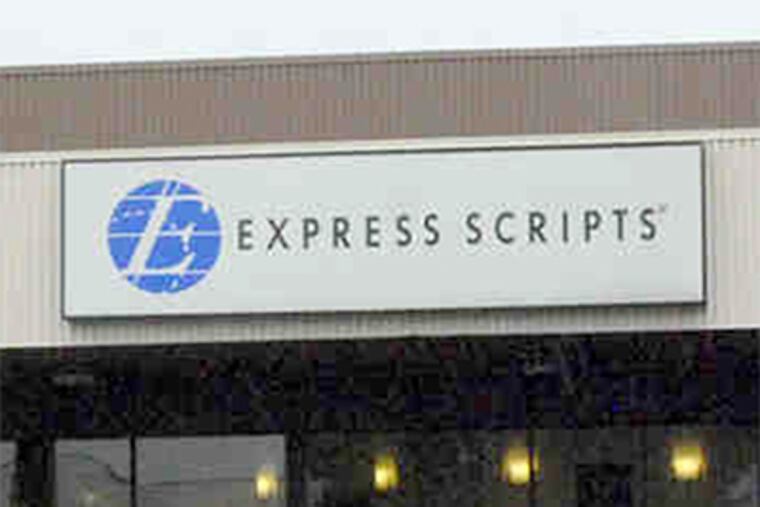Express Scripts alters financial landscape for drugs
The health-care economic landscape shifted again Monday when Express Scripts, the nation's largest pharmacy benefits manager, chose sides in the high-priced market for hepatitis C medication.

The health-care economic landscape shifted again Monday when Express Scripts, the nation's largest pharmacy benefits manager, chose sides in the high-priced market for hepatitis C medication.
St. Louis-based Express Scripts said it would provide only one brand of hepatitis C medicine to most patients in its employer-sponsored health plans, choosing AbbVie Inc.'s new Viekira Pak after AbbVie gave it an undisclosed but "significant discount" on its list price of $83,000 for a 12-week treatment regimen.
About 3.2 million Americans - and nearly 200 million people worldwide - have hepatitis C, a blood disease that attacks the liver and can be fatal. Liver transplants are expensive and may not work. New drugs have dramatically changed the situation - from keeping people alive with a cumbersome regimen of injections to curing the disease with pills - and drugmakers want the big money that used to go to hospitals and surgeons.
Still, California-based Gilead was criticized for listing its Sovaldi medication at $84,000 for a 12-week treatment in December 2013. More recently, it released a second medication called Harvoni for $94,500. Johnson & Johnson's Olysio, which is used in combination with other medication, also has a big price tag.
AbbVie is trading its high price for greater market share in a deal that will open the field for all hepatitis C genotype 1 patients. Many insurers had only approved Sovaldi for those with advanced liver disease.
Many patients' only contact with pharmacy benefit managers is through mail-order pharmacies. However, Express Scripts and CVS Health, among other pharmacy benefit managers, are also paid by companies and insurers to manage the drug portion of health insurance plans. Express Scripts had $94 billion in revenue in 2013, good for 24th on the Fortune 500 list.
Besides shifting costs to patients, employers and insurers are pushing back on prices. Earlier in December, SEPTA filed suit against Gilead in federal court in Philadelphia, alleging price gouging over the cost of Sovaldi.
Several drugmakers are banking on big profits from highly complex immunotherapy cancer drugs, but the employer-insurer pushback won't stop with hepatitis C medicine. More than ever, the key element in price reimbursement will be how different - and effective - a drug is compared with other approved treatments.
"This is what Express Scripts is asked to do by our plan sponsors," Steve Miller, chief medical officer at Express Scripts, said Monday. "We pit drug and pharmaceutical companies against each other when there are clinical opportunities to do so. With cancer, there had not been that much ability to do so, but now the market is very crowded."
Viekira Pak was approved by the U.S. Food and Drug Administration on Friday. Express Scripts said its committee of doctors and pharmacists found the AbbVie product functionally equivalent to the others for treating patients with genotype 1, the most common form. Viekira Pak's daily dose involves several pills, so it is not as simple as the once-daily Sovaldi. Viekira Pak also has some side effects.
Express Scripts said patients in its plans can continue with the other medicine if they have started treatment, and Sovaldi will be available for patients with other hepatitis C genotypes. But beginning Jan. 1, new patients with genotype 1, covered by plans using Express Scripts, will need to use AbbVie's product.
Spokeswomen for Gilead and J&J said their products should be available to patients and talks continue with Express Scripts.
"Pharmaceutical innovation must be rewarded based on the value it brings to patients and payers," Miller said. "This agreement marks a fundamental change in how sustainable access and affordability will be delivered to hepatitis C patients."